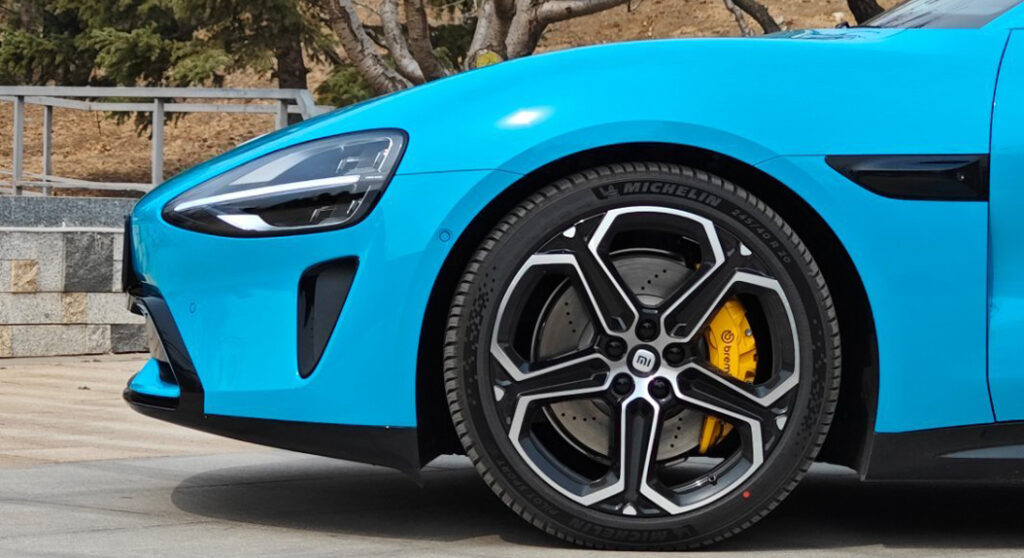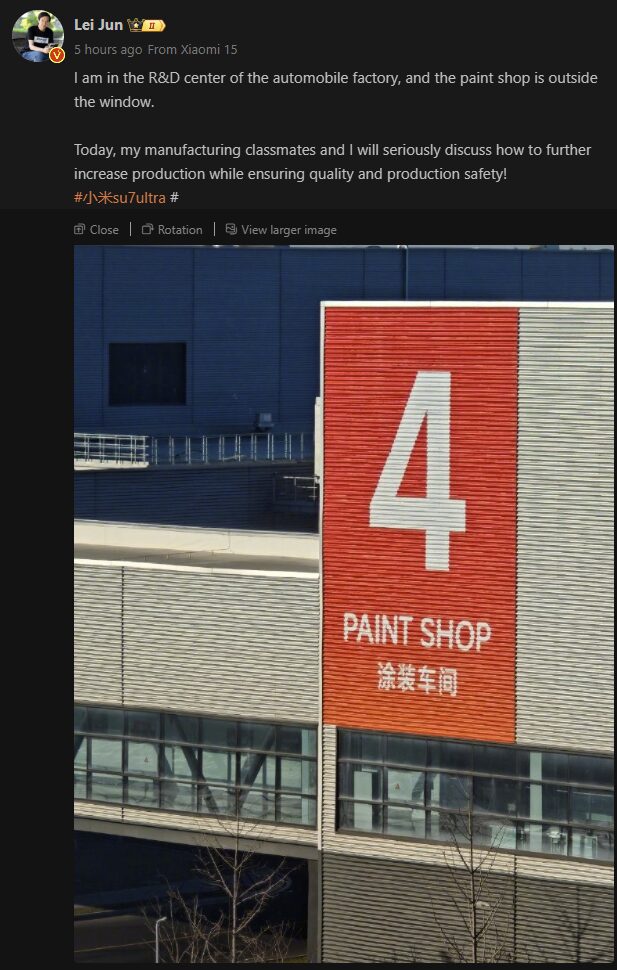Lei Jun, head of Xiaomi, posted today that he is currently at the car factory’s R&D base. As per him, he is having in-depth discussions with production peers to understand how production can be boosted even more with high standards and secure production processes in place.
Xiaomi’s Attempts at Production Capacity Enhancement
As demand for its first-ever car continues to rise, Xiaomi is working at full throttle in enhancing its production capacity. In December, Xiaomi President Lu Weibing stated that with no automotive background, Xiaomi Auto had managed to produce 100,000 cars in a record 230 days. However, with strong demand, new customers have a 4-5 month waiting period for orders.
To reduce waiting times and respond to demand in the marketplace, Xiaomi is working tirelessly to maximize output at its car factory.
Xiaomi SU7: Emerging Challenger in the EV Space
The Xiaomi SU7, its first-ever car, was inaugurated in a ceremony on 28th March last year, with a starting price of 215,900 yuan. In July, delivery operations were confirmed to be proceeding in a positive manner at Xiaomi Motors. In June, it transitioned to a double-shift model, and with that, it could make shipments of over 10,000 a month. In November, Lu Weibing announced that Xiaomi’s automobile factory had achieved a production capacity of 20,000 vehicles per month by October. He also emphasized that there was still room for further expansion, with the goal of maintaining and increasing this capacity in the near future.
Consistent Growth and Aspirational 2025 Targets
Xiaomi SU7 saw continued growth, with over 20,000 shipments in four consecutive months. In January 2025, it reached over 20,000 again, proving its success in its expansion in terms of production. In 2025, Xiaomi sets its ambitious target at shipping 300,000 cars, a move that signifies its drive towards becoming a key player in the EV industry.
With Lei Jun himself involved in hands-on negotiations for expansion in production, it looks determined to drive its automotive operations at a breakneck pace with high standards for security and quality in position. With its production strategies becoming ever more optimized, its efficiency in meeting demand will become paramount in its long-term success in the EV market.


 Emir Bardakçı
Emir Bardakçı


